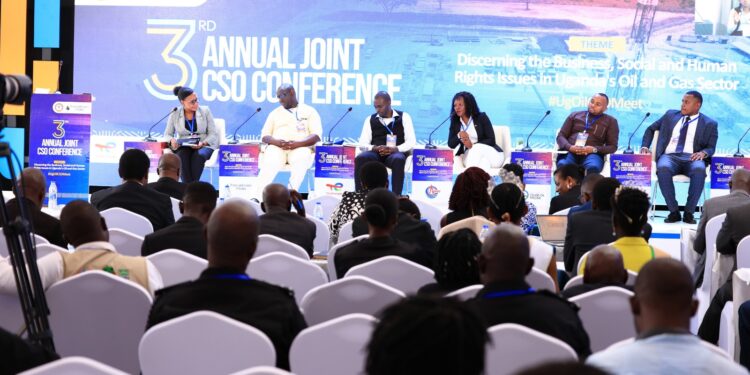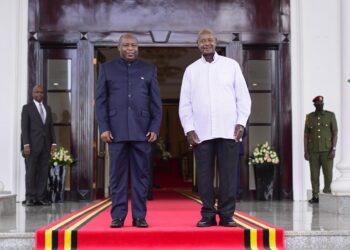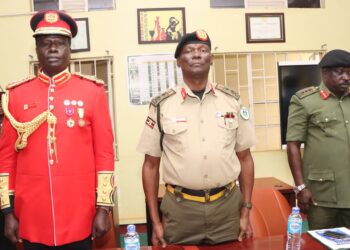As fresh protests and community grievances continue to surface around Uganda’s oil and gas developments, the East African Crude Oil Pipeline (EACOP) Ltd has reiterated its commitment to respecting human rights and engaging openly with civil society and affected communities.
The assurance was made during the recently held Civil Society Organization (CSO) Conference on Oil and Gas, organized by the Petroleum Authority of Uganda (PAU). The annual forum brought together key stakeholders to promote best practices in business and human rights, under the theme: “Discerning the Business, Social, and Human Rights Issues in Uganda’s Oil and Gas Sector.”
Speaking on a panel at the conference, Barbara Nakayenze, the Human Rights Coordinator at EACOP, outlined how the company is meeting its obligations under the UN Guiding Principles on Business and Human Rights (UNGPs), stressing that its approach goes beyond aspiration to include concrete processes and measurable actions.
“We moved from principle to practice, and from intent to measurable responsible action,” Nakayenze said, referencing the Human Rights Impact Assessment (HRIA) conducted in 2018 and the subsequent Human Rights Due Diligence (HRDD) framework that identified nine key human rights issues along the pipeline corridor.
Among the priorities identified were women’s rights, marine livelihoods, and the rights of contractor and supplier workers. Nakayenze also noted grievance mechanisms and access to information as cross-cutting concerns addressed through institutional reforms.
A major part of her message focused on transparency and multi-stakeholder accountability. She highlighted that the HRDD report has been publicly available on EACOP’s website and called on civil society to engage more proactively with the information.
“Every year we come to this forum and say the same thing: the report is available. Yet very few people seem to have read it,” she remarked, pointing to the disparity between attendance at the forums and familiarity with the report contents.
To promote inclusivity, EACOP has introduced several grievance platforms tailored for different stakeholders including one for community members, another for workers, and a whistleblowing tool (NAVICS) accessible for anonymous reporting. Nakayenze encouraged those unwilling to approach EACOP directly to use state institutions such as the Uganda Human Rights Commission or Tanzania’s Commission for Human Rights and Good Governance.
“We understand that some civil society groups or individuals may not want to speak directly to us. That’s why we support alternative avenues for accountability.”
In addition, she acknowledged the role of human rights defenders and youth voices, stating that protests and petitions both local and international are reviewed seriously. She shared that EACOP teams have on occasion met with protestors on-site, received their petitions, and followed up with constructive dialogues.
Nakayenze’s remarks also reflected a willingness to improve and innovate. “We’re not perfect,” she said, “but mistakes show that we are making progress. We’re open to new ways of engagement please propose them.”
Her comments were received with a mix of appreciation and caution, as some civil society actors questioned the effectiveness of the existing grievance channels and the accessibility of information to rural communities directly affected by the project.
Still, the tone of the session was one of guarded optimism, with many agreeing that continued dialogue and transparency are key to building trust in Uganda’s oil and gas sector.
As the EACOP project progresses, all eyes remain on how these commitments will be implemented on the ground and how civil society will respond.







Discussion about this post